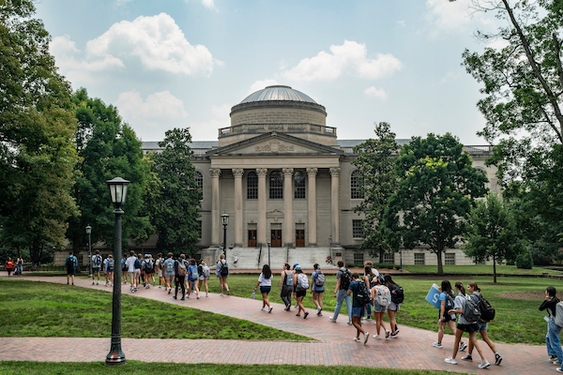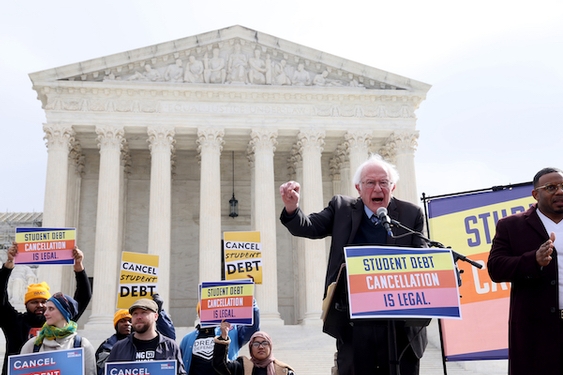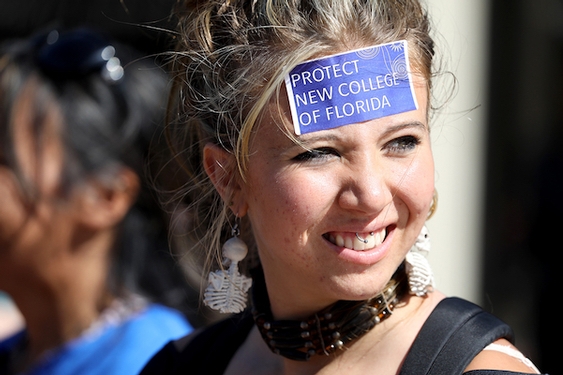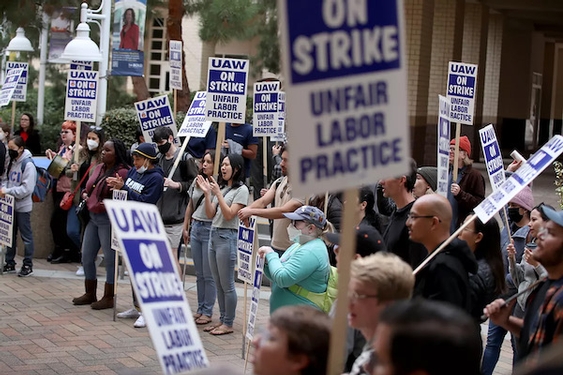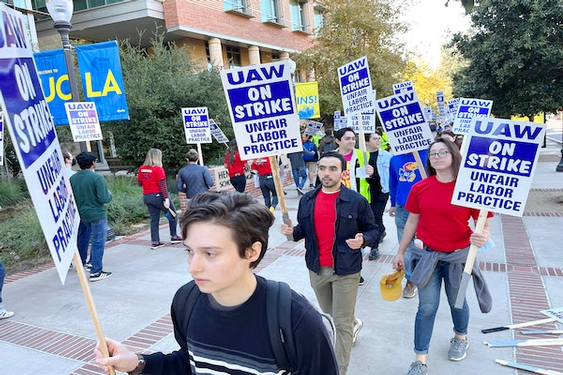A group of student protesters at the University of Pennsylvania ended a nearly six-week encampment on the College Green this weekend after they stormed Franklin Field during halftime of the Penn-Yale football game.
The students, who belong to a group called Fossil Free Penn, have been calling on the university to help low-income residents who are being displaced from the neighboring University City Townhomes, further dissociate from fossil fuel companies, and make payments to the city in lieu of taxes. Nineteen people, 17 of them students, were arrested in the football field takeover, the university said.
Ari Bortman, a Fossil Free Penn organizer and graduate student, said students decided to end the encampment on a positive note — “This is as strong of an exit as we could imagine making right now” — but fully intend to push in other ways until their demands are met.
“We’re leaving in power,” Bortman said. “We’re leaving with the strongest message we’ve been able to give to Penn administration.”
It’s the second encampment the students staged just outside College Hall, Penn’s main administration building. Students ended the first last spring and then set up another in mid-September.
The football game was delayed about an hour during the protest, as students went onto the field carrying banners and chanting.
The group targeted last weekend because it was homecoming and also the inauguration of Penn President Liz Magill, and the presence of a lot of alumni would raise the profile of any action they took. If the university is serious about taking its next positive steps in history, it must work with students on the demands they’ve laid out, Bortman said.
The encampment was the latest effort by Fossil Free Penn to address a long-standing gripe with the Ivy League university about its ties to fossil fuel companies.
In 2019, students took over a Penn board of trustees meeting, chanting in unison: “We demand a town hall because the impact of the fossil fuel industry is genocidal.” University officials warned students that they were violating “the open expression guidelines” and could face disciplinary action.
In 2020, students heralded a small victory when Penn announced it has no direct investments in the thermal coal or tar sands industries and didn’t expect to put its money there in the future. Critics often point to those industries as the most problematic: Thermal coal and tar or oil sands are used in power production, and the extraction, transportation, and burning of those fossil fuels are often cited as factors in climate change.
But students have argued that the action didn’t go far enough.
Penn has said it has taken multiple steps in recent years to address concerns. Last year, it announced its goal of reducing net greenhouse gas emissions from its endowment investments to zero by 2050, which it said in a statement earlier this month that it is still working toward.
Penn also said it would refrain from making any new commitments in “private equity vehicles dedicated to investments in fossil fuel production.” It also said it would continue to refrain from making direct investments in companies involved in the production of fossil fuels.
The university said it had no comment on students’ decision to end the encampment.
———
©2022 The Philadelphia Inquirer. Visit inquirer.com. Distributed by Tribune Content Agency, LLC.






